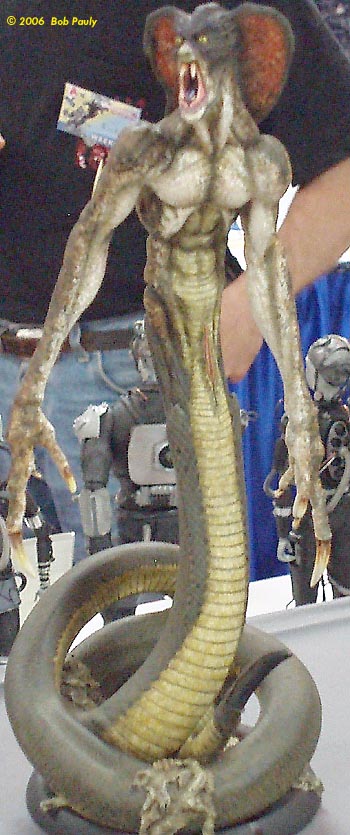As climate change warms the nation, giant Burmese pythons could colonize one-third of the USA, from San Francisco across the Southwest, Texas and the South and up north along the Virginia coast, according to U.S. Geological Survey maps released Wednesday.
The pythons can be 20 feet long and 250 pounds. They are highly adaptable to new environments.
Two federal agencies - the USGS and the U.S. Fish and Wildlife Service - are investigating the range of nine invasive snakes in Florida, concerned about the danger they now pose to endangered species. The agencies are collecting data to aid in the control of these populations.
They examined Burmese pythons first and, based on where they live in Asia, estimated where they might live here. One map shows where the pythons could live today, an area that expands when scientists use global warming models for 2100.
"We were surprised by the map. It was bigger than we thought it was going to be," says Gordon Rodda, zoologist and lead project researcher. "They are moving northward, there's no question."
Burmese pythons were introduced to the USA as part of the pet trade. The first specimens in the wild were discovered in the mid-1990s in the Florida Everglades, released by owners who no longer wanted them, says Skip Snow, a wildlife biologist with the National Parks Service in the Everglades.
By 2003, there was evidence the snakes had established breeding colonies in the wild. Florida began regulating their sale and ownership Jan. 1.
If federal officials had to worry only about Florida, it would be "decades" before the pythons move into other states, Rodda says. But people keep dumping pythons they don't want into the wild. "We just learned about some that had been released in Arkansas," he says.
The Burmese python is not poisonous and not considered a danger to humans. Attacks on humans have involved pet owners who mishandle and misfeed the snakes, Snow says. In Florida, they eat bobcats, deer, alligators, raccoons, cats, rats, rabbits, muskrats, possum, mice, ducks, egrets, herons and song birds. They grab with their mouth to anchor the prey, then coil around the animal and crush it to death before eating it whole.
If you see one, don't attempt to engage it. Leave the area, note the location and notify the authorities.
http://news.aol.com/story/_a/warmin...s/20080221084309990001?ncid=NWS00010000000001
The pythons can be 20 feet long and 250 pounds. They are highly adaptable to new environments.
Two federal agencies - the USGS and the U.S. Fish and Wildlife Service - are investigating the range of nine invasive snakes in Florida, concerned about the danger they now pose to endangered species. The agencies are collecting data to aid in the control of these populations.
They examined Burmese pythons first and, based on where they live in Asia, estimated where they might live here. One map shows where the pythons could live today, an area that expands when scientists use global warming models for 2100.
"We were surprised by the map. It was bigger than we thought it was going to be," says Gordon Rodda, zoologist and lead project researcher. "They are moving northward, there's no question."
Burmese pythons were introduced to the USA as part of the pet trade. The first specimens in the wild were discovered in the mid-1990s in the Florida Everglades, released by owners who no longer wanted them, says Skip Snow, a wildlife biologist with the National Parks Service in the Everglades.
By 2003, there was evidence the snakes had established breeding colonies in the wild. Florida began regulating their sale and ownership Jan. 1.
If federal officials had to worry only about Florida, it would be "decades" before the pythons move into other states, Rodda says. But people keep dumping pythons they don't want into the wild. "We just learned about some that had been released in Arkansas," he says.
The Burmese python is not poisonous and not considered a danger to humans. Attacks on humans have involved pet owners who mishandle and misfeed the snakes, Snow says. In Florida, they eat bobcats, deer, alligators, raccoons, cats, rats, rabbits, muskrats, possum, mice, ducks, egrets, herons and song birds. They grab with their mouth to anchor the prey, then coil around the animal and crush it to death before eating it whole.
If you see one, don't attempt to engage it. Leave the area, note the location and notify the authorities.
http://news.aol.com/story/_a/warmin...s/20080221084309990001?ncid=NWS00010000000001






